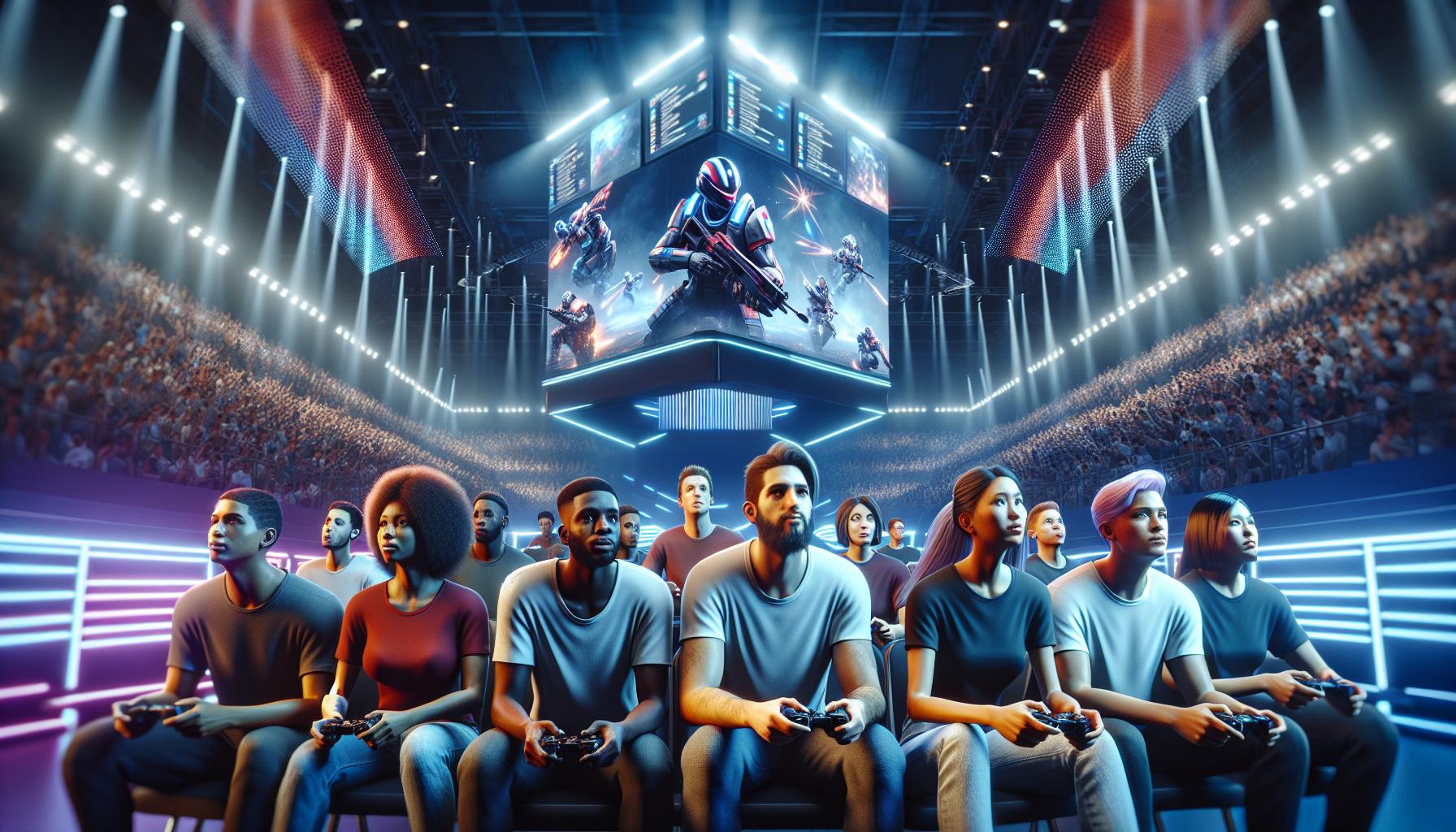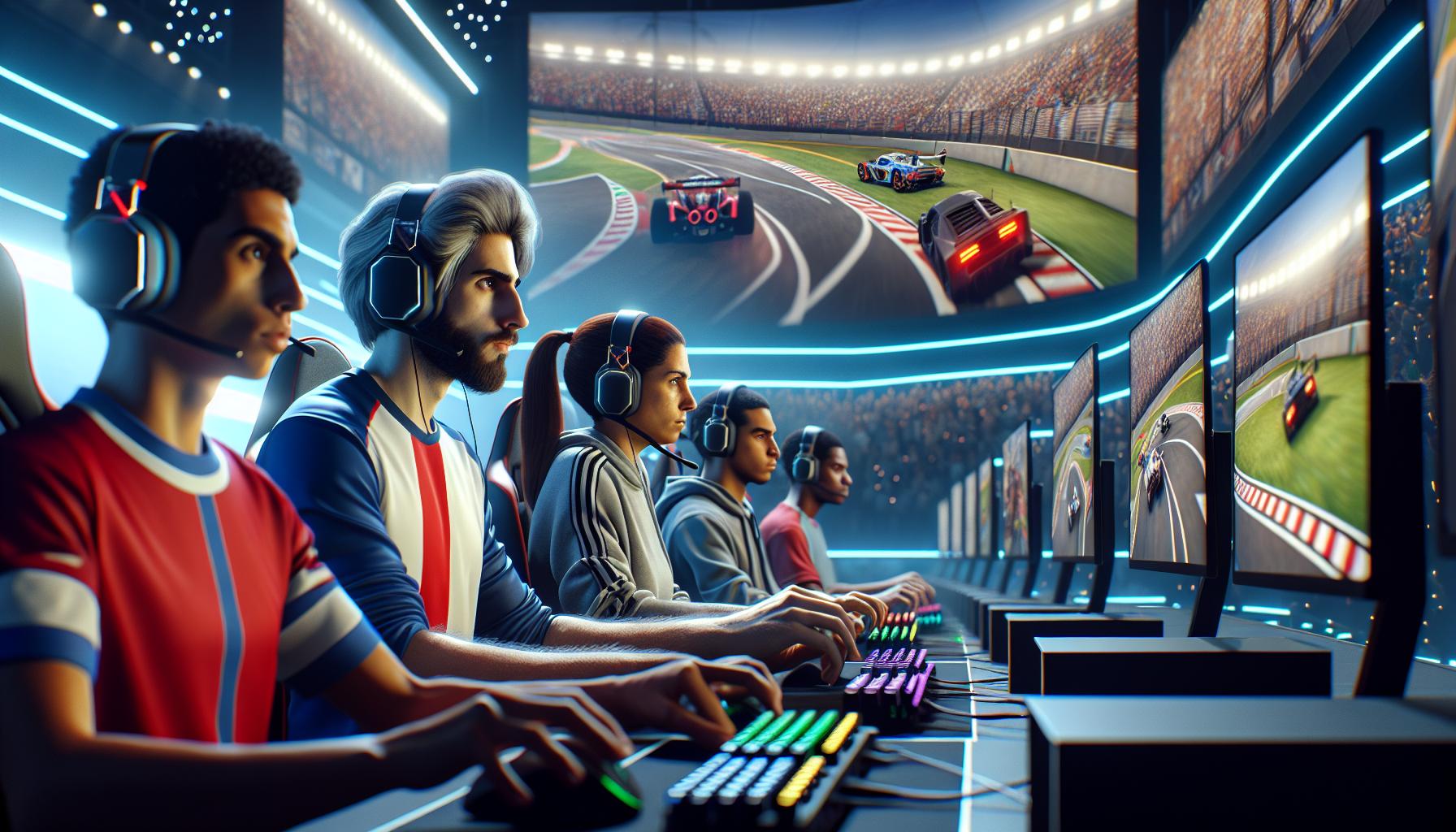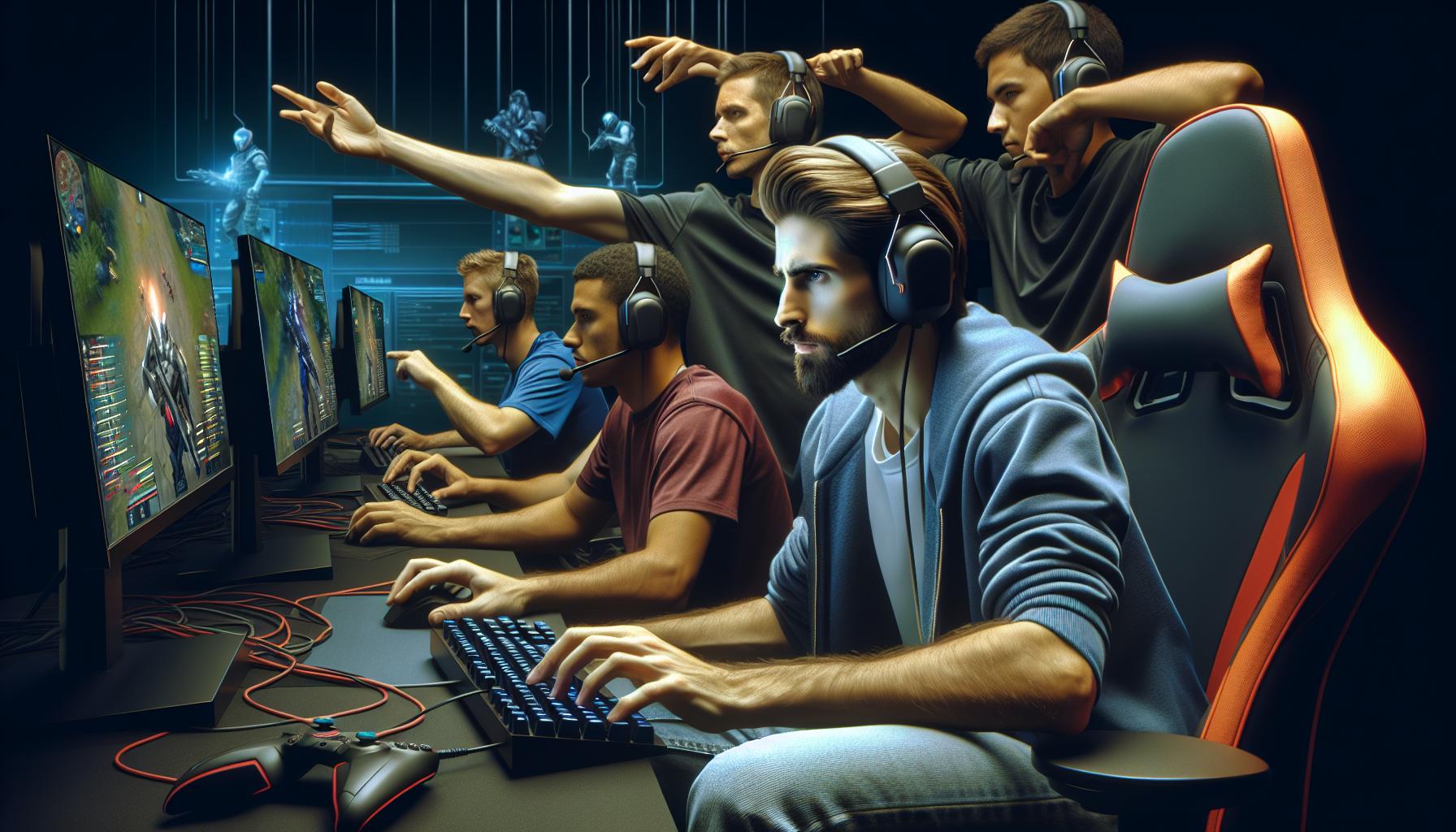In a world where athletes are redefining what it means to compete, the Olympic Esports Games are charging onto the scene like a gamer on a caffeine high. Gone are the days when sports meant just sweat and muscle; now, it’s all about strategy, skill, and a dash of pixelated glory. Picture this: the thrill of the Olympic spirit combined with the electrifying excitement of esports. It’s like mixing peanut butter and chocolate, and who doesn’t love that combo?
As traditional sports face new challengers, the Olympic Esports Games offer a fresh perspective on competition. They’re not just a passing trend; they’re a testament to how far gaming has come. So grab your controllers and get ready to dive into a world where reflexes reign supreme, and every click could lead to gold. Who knew the path to Olympic glory could be paved with so many virtual power-ups?
Olympic Esports Games
Emerging as a progressive fusion of technology and athletics, Olympic Esports Games connect traditional Olympic values with the dynamic nature of esports. This evolution accommodates both competitive gamers and sports enthusiasts, broadening the appeal of the Olympic movement. During these events, players display exceptional strategy and skill, shifting the focus from mere physicality to cognitive prowess.
Competitive formats in Olympic Esports Games feature various titles that captivate audiences globally. Notable games range from racing simulations to strategy-based competitions. Each event retains the essence of fair play, emphasizing sportsmanship within digital arenas. Audiences witness real-time tactical decisions, highlighting the mental agility required in high-stakes gaming scenarios.
Recognizing the rising popularity of esports, the International Olympic Committee (IOC) actively promotes inclusion and innovation. The IOC’s initiatives focus on establishing guidelines that ensure fair competition. Collaboration between traditional sports federations and game developers supports the credibility of this new discipline. As a result, the Olympic Esports Games align mainstream sports with competitive gaming, creating a unique spectacle.
Global participation showcases diverse cultures through gaming. Athletes from different countries compete fiercely while representing their nations, fostering camaraderie and unity. Livestreaming and digital platforms enhance accessibility, allowing fans to engage with their favorite competitors.
Ultimately, Olympic Esports Games reflect a transformation in global sports culture. They embrace technological advancements while preserving the core values of the Olympic spirit. Through this fusion, a new generation of athletes emerges, showcasing their skills on a world stage.
History of Esports in the Olympics

The integration of esports into the Olympic framework marks a significant milestone. As technology shapes sports, it leads to the evolution of competition.
Evolution of Esports Competitions
Initially, esports emerged as informal gatherings to showcase gaming skills. Over time, these events transformed, attracting millions of viewers and players worldwide. Major tournaments like EVO and The International pioneered structured competitions, demonstrating the viability of esports. Growing prize pools and sponsorships further legitimized esports, driving increased attention. With advancements in streaming technology, viewership soared, establishing an engaged global audience. Consequently, esports evolved into a recognized discipline, leading to discussions about its Olympic potential.
Inclusion of Esports in Olympic Programming
The International Olympic Committee (IOC) began exploring esports in 2017, recognizing its impact on youth engagement. Collaborations with game developers and traditional sports federations marked the beginning of this relationship. In 2021, the Olympic Virtual Series debuted, featuring competitions in popular titles like baseball, cycling, and motorsports. These events aimed to merge competitive gaming with Olympic values, fostering inclusivity and enhancing fan experiences. The IOC emphasizes fair play and sportsmanship, ensuring that esports align with traditional athletic principles. This strategic approach showcases the evolving landscape of sports, emphasizing both innovation and tradition.
Popular Games Featured in Olympic Esports

A variety of game titles capture the spirit of the Olympic Esports. These selected games showcase skill, strategy, and competitive excellence, enhancing the overall viewer experience.
Analysis of Game Titles
Various popular titles represent the Olympic Esports Games, including racing games like “Gran Turismo,” sports simulations such as “NBA 2K,” and strategy games like “Starcraft II.” Each title contributes unique elements to the competition, appealing to diverse gaming audiences. Racing games emphasize precision and speed, fostering rivalry among players. Sports simulations reflect traditional athletic competition, bridging the gap between virtual and physical sports. Strategy games test players’ critical thinking and decision-making abilities. Titles chosen often feature established franchises known for engaging gameplay, heightening interest in the event.
Competitive formats in Olympic Esports aim to maintain fairness and integrity. Players typically compete in online tournaments using both solo and team formats across various titles. Tournament structures include knockout stages and round-robin formats, enhancing excitement. Rules emphasize sportsmanship, with mandatory code-of-conduct adherence. Matches consist of predetermined time limits, ensuring quick-paced action. Throughout competitions, the International Olympic Committee oversees adherence to these guidelines, providing a structured environment that mirrors traditional sporting events. Engaging in an environment designed for fairness allows participants to perform at their best.
Performance and Participation

Participation in the Olympic Esports Games showcases a new wave of athletes redefining competitive sports. Athletes often possess diverse backgrounds, each bringing unique skills and experiences to the digital arena. Active participation involves intense training regimens, as many dedicate hours daily to mastering their craft. Gamers refine their abilities through regular practice and strategic analysis, improving both individual and team performances.
Athlete Involvement
Athletes in esports profoundly impact the games’ competitive nature. Engagement occurs through rigorous practice sessions that benefit performance in high-pressure environments. Many athletes also leverage coaching to enhance gaming techniques and strategies. Inclusion in global competitions allows them to interact with rival players, fostering camaraderie and sportsmanship. Ultimately, their involvement exemplifies dedication, contributing to the Olympics’ core values while attracting new audiences.
Team Dynamics and Strategies
Team dynamics play a crucial role in esports competitions. Cooperation within teams often determines success in contests featuring various game titles. Effective communication fosters synergy, enabling players to execute complex strategies seamlessly. Developing distinct roles among players allows teams to leverage individual strengths while also mitigating weaknesses. Many teams analyze previous matches thoroughly to identify improvement areas, adapting strategies to align with competitors. By prioritizing collaboration and strategic planning, teams enhance their competitive edge in the Olympic Esports arena.
Future of Olympic Esports Games
The future of Olympic Esports Games promises an exciting evolution of competition and participation. As technology progresses, the integration of virtual reality and augmented reality is likely to enhance the gaming experience.
Trends and Innovations
Various trends emerge as Olympic Esports Games continue to develop. Integration of advanced technology, such as AI-driven analytics, boosts player performance and enhances gameplay experiences. Collaborations between major gaming companies and traditional sports organizations are increasing, leading to more inclusive competitions. Higher production values for livestreams attract larger audiences, showcasing a blend of entertainment and competition. Furthermore, the establishment of grassroots initiatives encourages youth involvement in esports, creating pathways for future stars. Enhanced engagement through social media and interactive platforms allows fans to connect directly with players and participate in events. All these factors point toward a dynamic landscape for Olympic esports.
Potential Challenges Ahead
Challenges in Olympic Esports Games could impact their growth and acceptance. Issues related to regulation and standardization arise as many titles fall under varying rules and guidelines. Addressing concerns about cheating and ensuring fair competition remain critical. Resistance from traditionalists who may not view esports as legitimate sports may hinder progress. Balancing representation of diverse gaming cultures while maintaining Olympic values presents an additional obstacle. Moreover, the rapid evolution of gaming technology demands constant adaptation from both organizers and participants. Engagement strategies must evolve to keep audiences captivated in an increasingly competitive entertainment landscape.
Competitive Formats and Rules
The Olympic Esports Games signify a pivotal moment in the evolution of sports. By merging traditional Olympic values with the dynamic world of esports, it creates a platform for a new generation of athletes. This innovative approach not only broadens the appeal of the Olympic movement but also fosters inclusivity and collaboration across diverse gaming cultures.
As technology continues to advance, the potential for immersive experiences and enhanced competition grows. The future promises to be bright for Olympic esports, with opportunities for increased engagement and participation. Embracing this evolution allows fans and athletes alike to celebrate the spirit of competition in a modern context. The Olympic Esports Games are here to stay, and they’re reshaping the landscape of sports for generations to come.

